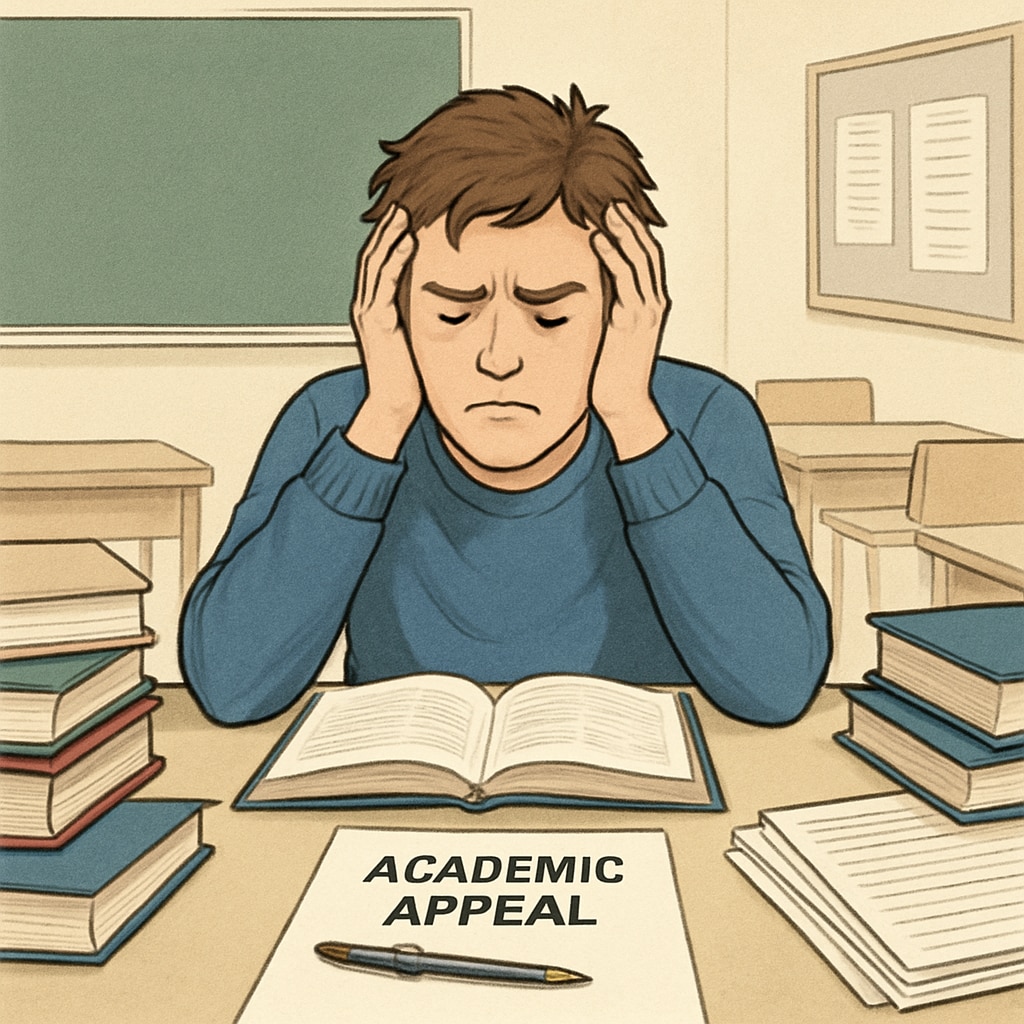Facing unfair academic assessments, students often struggle with navigating the appeals process. Issues such as teacher misconduct and grade disputes can significantly impact their academic experience and mental well-being. This article delves into the challenges students face when filing academic appeals, the flaws in existing systems, and actionable solutions to create a more transparent and equitable framework.
Challenges in Academic Appeals: A System Fraught with Complexity
Students frequently encounter several obstacles when attempting to appeal unfair academic assessments. These challenges include unclear procedures, lack of support, and fear of retaliation. For example, many schools fail to provide detailed guidelines about how students can contest grades or report instances of teacher misconduct. This lack of transparency often leaves students feeling powerless.
Additionally, the appeals process itself can be intimidating, especially for younger students in K12 settings. They may fear that filing a complaint could lead to strained relationships with teachers or administrative pushback. As a result, many students choose to remain silent, even when their academic futures are at stake.
- Unclear Policies: Many institutions lack standardized policies for academic appeals, leading to confusion.
- Fear of Retaliation: Students may worry about negative repercussions, such as biased grading or damaged reputations.
- Limited Support: Guidance counselors or student advocates are often unavailable to support students during the process.

The Impact of Unfair Assessments on Student Development
Unfair academic assessments can have long-lasting effects on a student’s mental health, confidence, and future opportunities. For instance, a student who receives an unjust low grade may lose eligibility for scholarships, honors programs, or advanced coursework. This can perpetuate a cycle of academic inequity.
Furthermore, when issues like teacher misconduct go unaddressed, it creates an environment where students feel unsupported and undervalued. This can lead to decreased motivation, higher dropout rates, and even mental health challenges such as anxiety and depression.
Research highlights the importance of fair assessments in fostering academic growth and resilience. According to a study by Britannica, equitable evaluation systems contribute significantly to student success and engagement. Therefore, addressing these issues is not just a matter of fairness but essential for holistic educational development.

Building a Fairer Academic Appeals System
To address the challenges in academic appeals, schools must implement reforms that prioritize fairness, transparency, and student support. Several strategies can be employed to achieve this:
- Clear Policies: Institutions should create and communicate detailed guidelines for filing academic appeals, including timelines, required documentation, and steps involved.
- Student Advocacy: Schools should appoint student advocates or counselors to guide students through the appeals process, ensuring their voices are heard.
- Third-Party Review: Introduce impartial review committees to handle grade disputes and allegations of teacher misconduct.
- Feedback Mechanisms: Regular feedback from students about the appeals process can help identify weaknesses and improve systems.
In addition, educational institutions must foster a culture of accountability among teachers and administrators. By prioritizing professional development focused on unbiased grading and inclusive teaching practices, schools can reduce instances of misconduct and disputes.
External resources like Wikipedia’s Academic Integrity page provide valuable insights into ethical grading practices and the importance of fostering trust within educational environments.
Conclusion: Empowering Students to Speak Up
Unfair academic assessments and the subsequent challenges in navigating appeals can have profound implications for students. Addressing these issues requires a multi-faceted approach that includes clearer policies, student advocacy, and a commitment to transparency.
By empowering students to speak up and creating systems that support their rights, educational institutions can ensure a fairer and more inclusive environment. Ultimately, resolving grade disputes and addressing teacher misconduct is not just about correcting errors—it is about fostering trust and integrity in education.
As schools move toward these reforms, students will no longer feel the need to remain silent. Instead, they will have the tools and confidence to contest unfair evaluations and contribute to a more equitable academic landscape.


